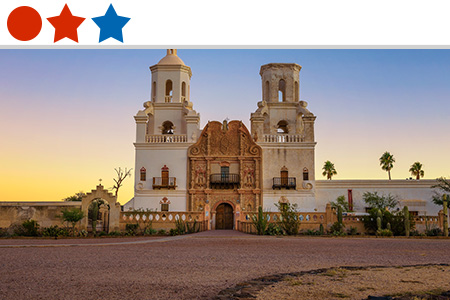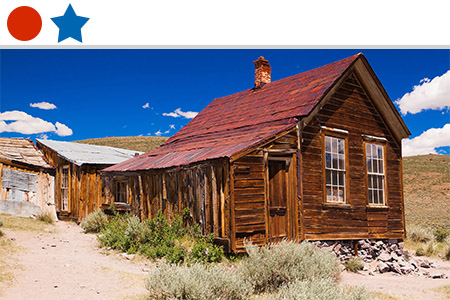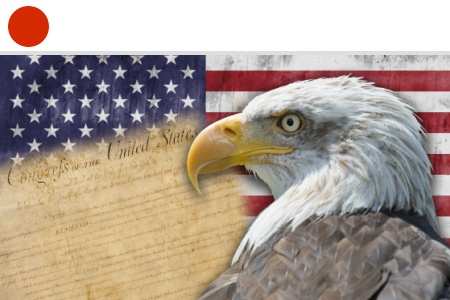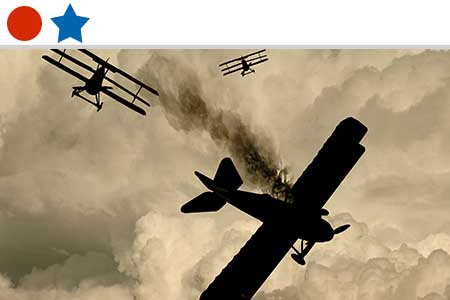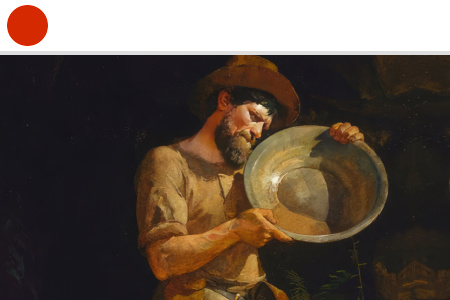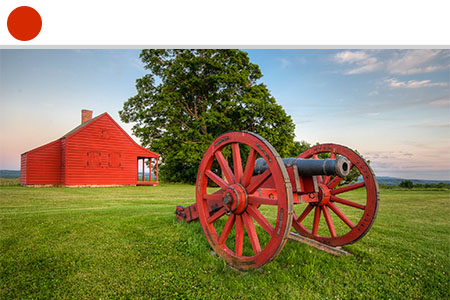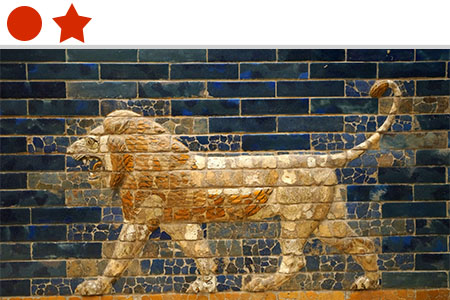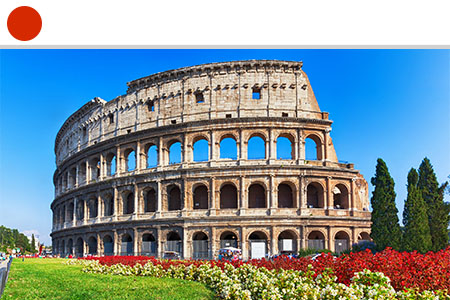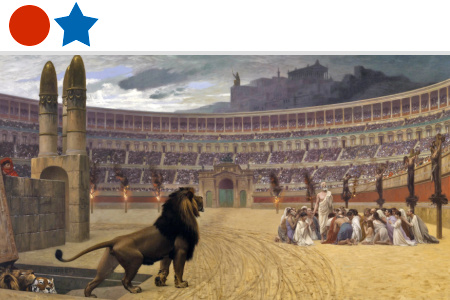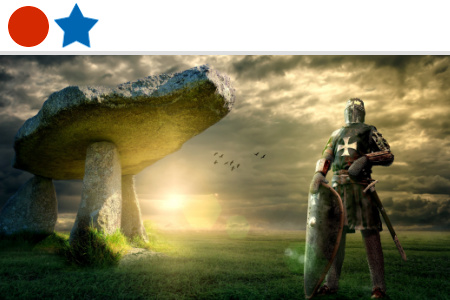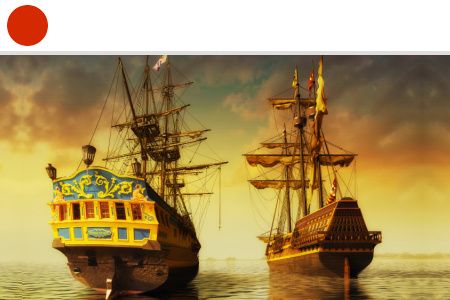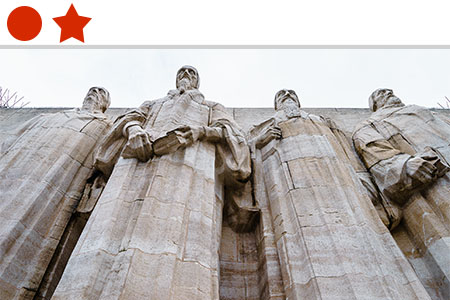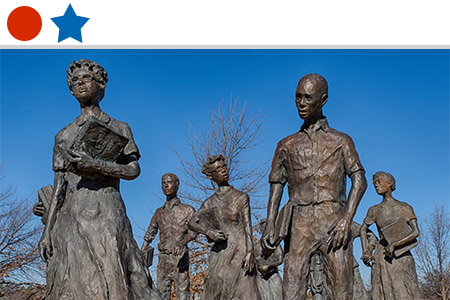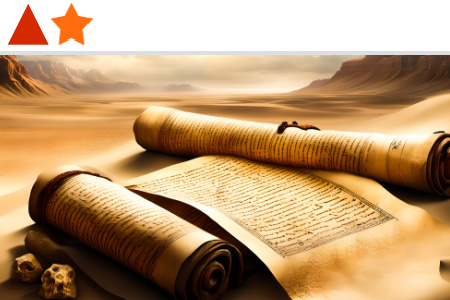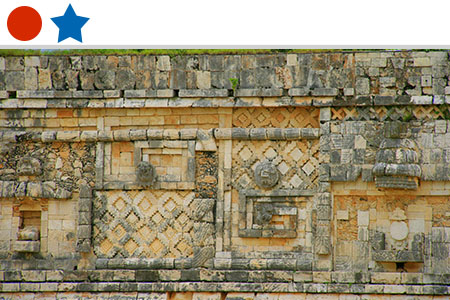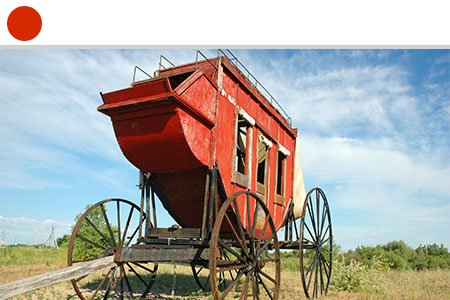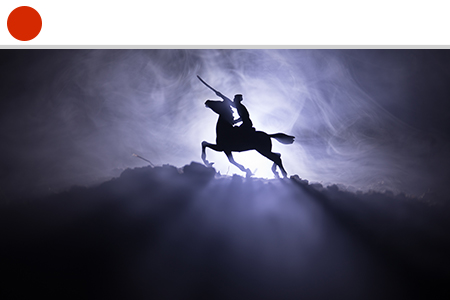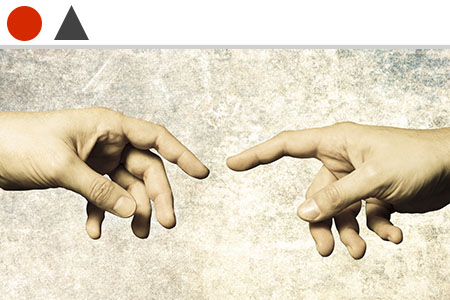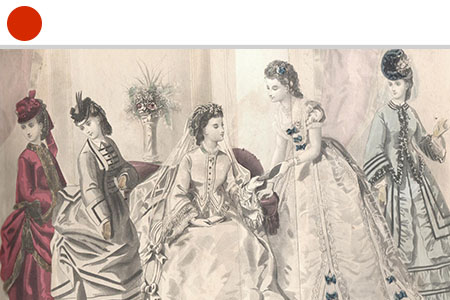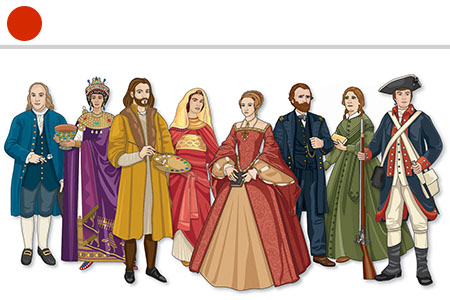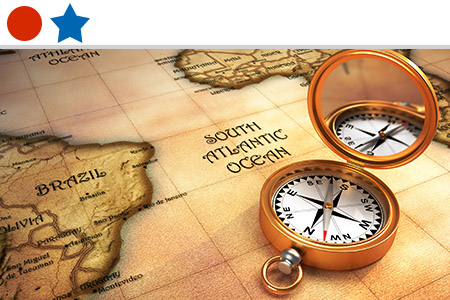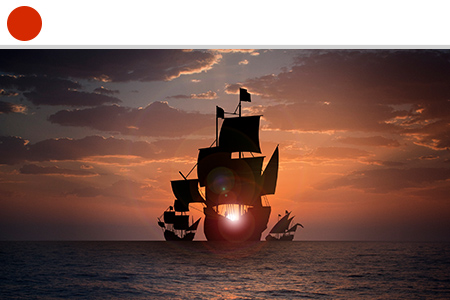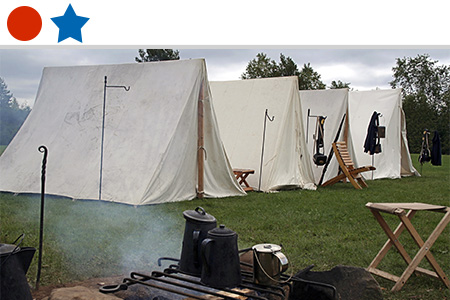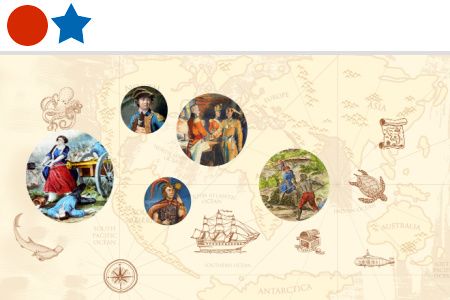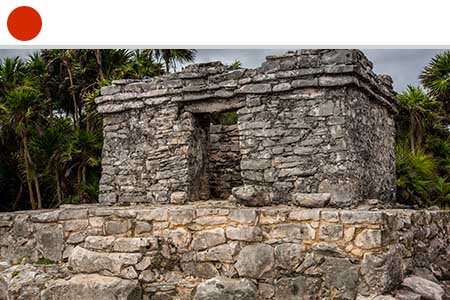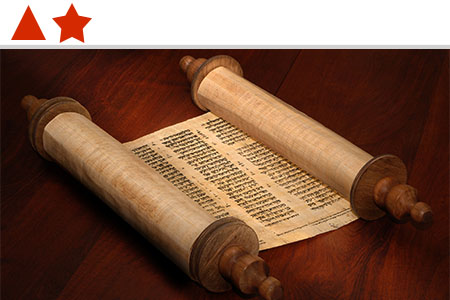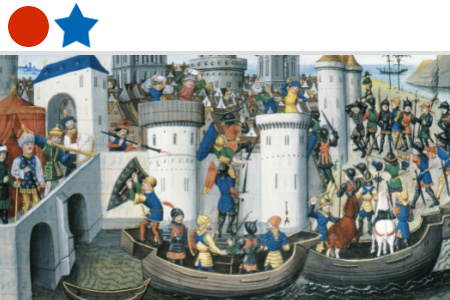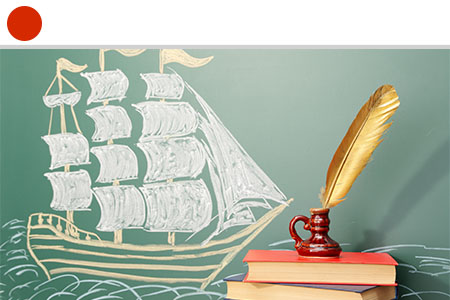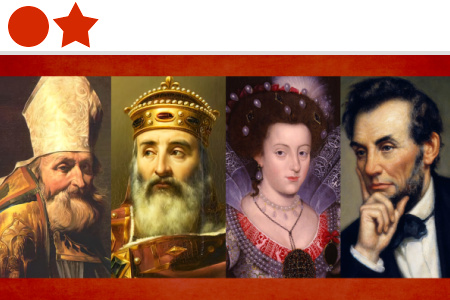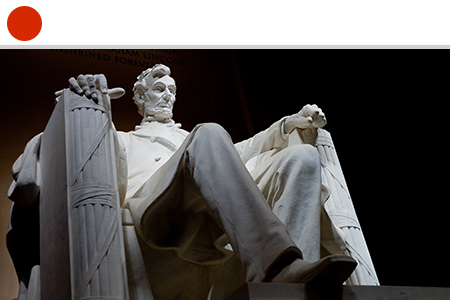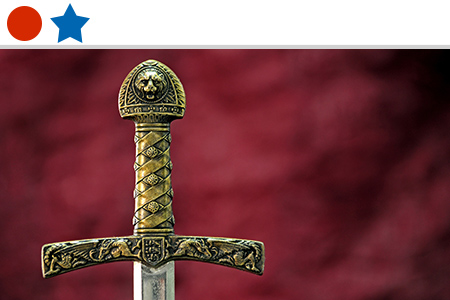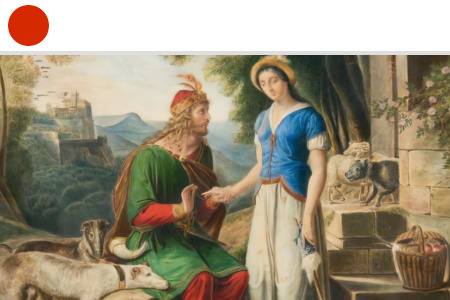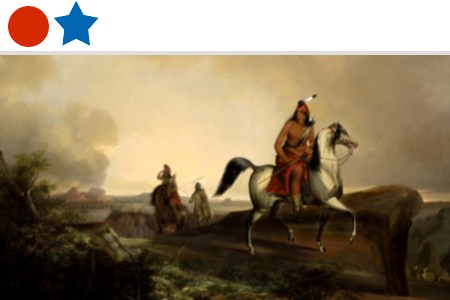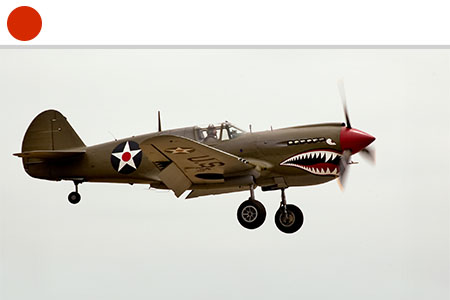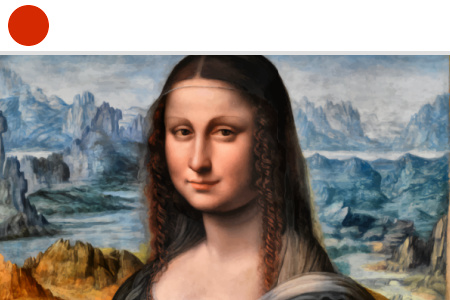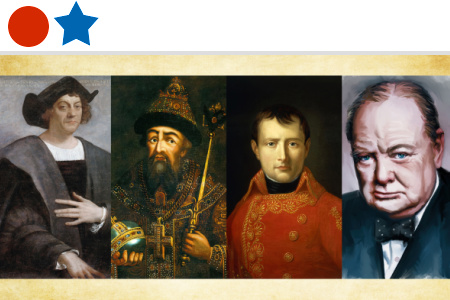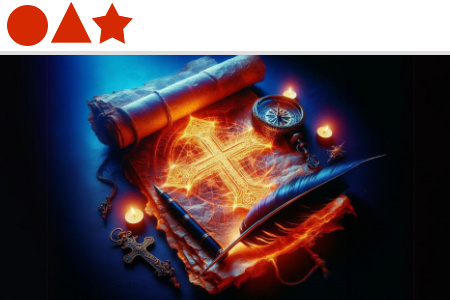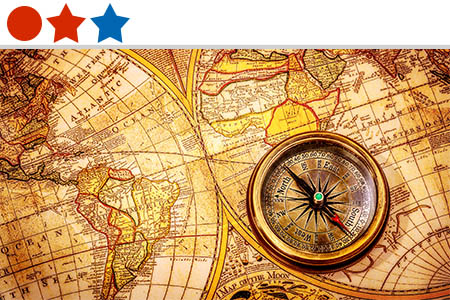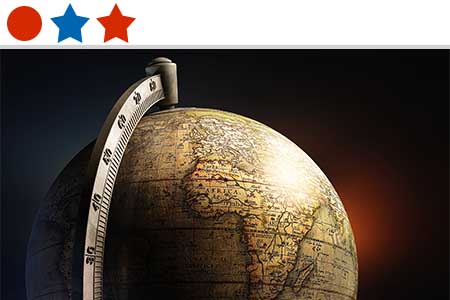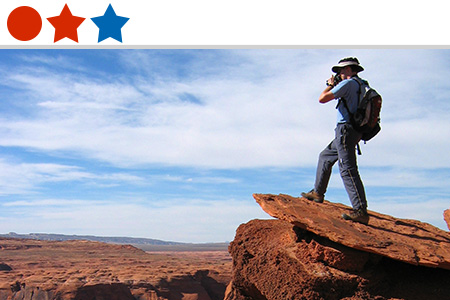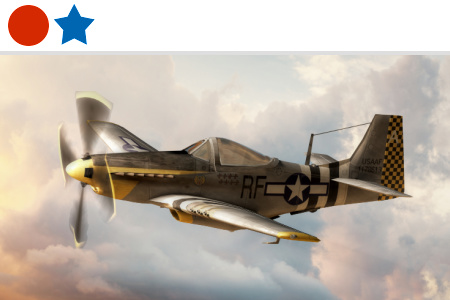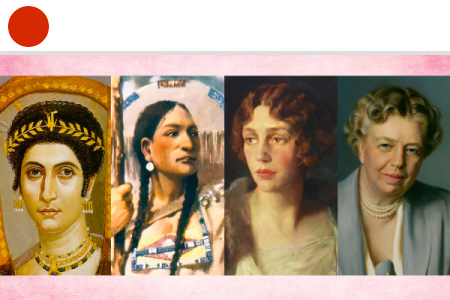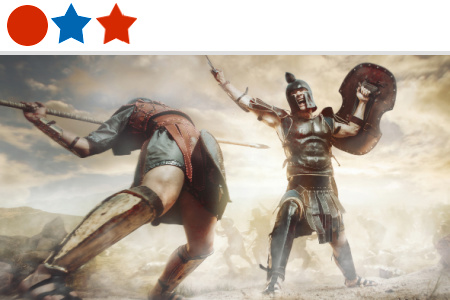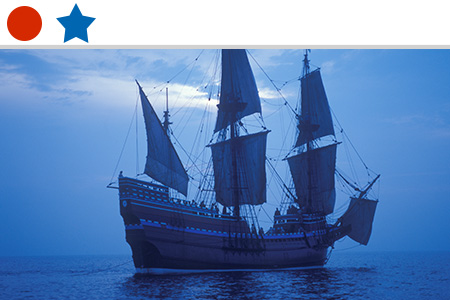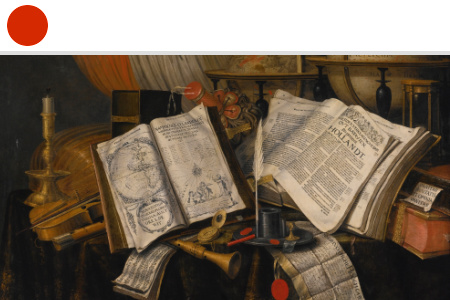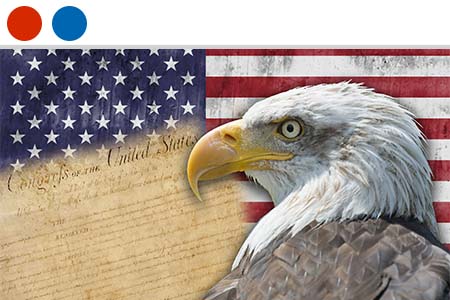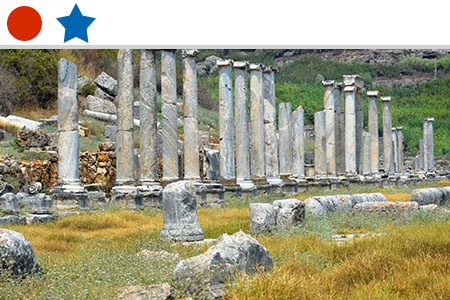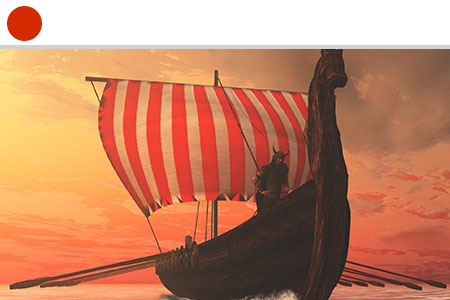Welcome to Our This Day in History Homeschool Curriculum
Did you ever wonder what happened on a particular day in the past? This Day in History contains unique lessons for every single day of the year. Written for students of all ages, this course gives brief background information of each historical event, living book lists, worksheets and activities, additional suggestions for activities and projects, short stories, and discussion and research questions that incorporate extra fun into your history lessons.
Getting Started with Our This Day in History Homeschool Course
This Day in History is a series of supplemental worksheets designed to add some extra fun into your homeschool history lessons.
Overview
- Activities for every day of the year
- Includes brief background information of each event, living book lists, worksheets and activities, additional activity/project suggestions, short stories, and discussion and research questions
- Grades: K–12
Supplies Needed
- Lessons on SchoolhouseTeachers.com
What to Do
Go to the Class Lessons and download the lesson plan. Decide which date you’ll start on. Then start with the Day 1 checklist. Follow the instructions each day on the lesson plans and mark them off when completed.
Course Sample
January 1, 1707
John V is crowned King of Portugal.
- Birth: October 22, 1689
- Death: July 31, 1750
- Reign: 1706-1750
- Preceded by: Peter II
- Succeeded by: Joseph I
- Nickname: the Magnanimous
January 1 History Flashcard 3×5
January 1 History Flashcard 4×6
When John V was born, he was made the Prince of Brazil and eleventh Duke of Braganza; both were pretty big jobs for an infant. His ultimate job came when he was 17 years old: he was crowned King of Portugal.
As king, his power and popularity grew as the country of Portugal received the income of gold and diamonds from its colony Brazil. One fifth of every ton extracted from the mines in Brazil was given to the king. This wealth allowed King John V to make decisions without having to ask his advisers for contributions. This propelled the monarchy of Portugal to an absolute monarchy.
He used his wealth to buy many works of art from famous painters of the time. He also increased the size of the royal library by purchasing great literature and musical compositions.
The king invested his wealth into the country’s economy by creating new manufacturing facilities and building royal academies to promote education among his subjects.
Questions for Further Discussion:
- Why do you think the nobility bestowed lofty positions upon infants? Was it just custom or preparation for ruling?
- Consider the practice of sending profits from a colony back to the crown. If you were a Brazilian mine owner, would you consider this practice acceptable? Would the protection and support from the Portuguese government be worth the cost?
- Who were some of the famous European artists in the 1700s?
- If you were king for a month, how would you rule? Make a list of the things you might do by royal decree.
Short Fiction: For Middle to High School Ages
Meet Anna, a sixteen-year-old princess who is reassured by the King’s love.
Living Books List:
- History of Portugal: Pamphlet Collection on Google Books (link provided on our weekly book list above)
- Henry the Navigator: Prince of Portuguese Exploration by Lisa Arangello ISBN# 0778724697
- Who was Ferdinand Magellan by S. A. Kramer ISBN# 044843105X
Hands-On Learning: Make a Book and Crown Holder
Print out these templates to create your own book about the King of Portugal. Use your imagination to draw pictures about the facts of his life. If you would like, cut out the crown template and glue it to your January book to hold your booklet.
Course Outline for Our This Day in History Homeschool Course
Nearly six hundred historical events explore American, Canadian, Australian, and world history from the distant past through the present. Use these history worksheets as a stand-alone homeschool history course or as a complement to other homeschool history studies.
January
- January 1, 1707: John V is crowned King of Portugal.
- January 2, 1492: The Spaniards take the city of Granada from the Moors.
- January 2, 1788: Georgia is the fourth state to join the Union.
- January 3, 1959: Alaska is the forty-ninth state to join the Union.
- January 4, 1809: Louis Braille, the young French inventor of the Braille system of reading and writing for the blind, is born.
- January 4, 1896: Utah is the thirty-fifth state to join the Union.
- January 5, 1943: George Washington Carver, an American botanist and inventor who developed over 300 uses for the peanut, dies.
- January 6, 1912: New Mexico is the forty-seventh state to join the Union.
- January 7, 1610: Galileo first observes the three moons of Jupiter.
- January 7, 1718: Israel Putnam, an American patriot and a brave Revolutionary War veteran, is born.
- January 8, 1815: Major General Andrew Jackson’s troops win the Battle of New Orleans.
- January 8, 1994: The longest human spaceflight in history begins, a record 437 days, with the launch of the Soyuz TM-18 and the Russian cosmonaut Valeri Polyakov.
- January 9, 1788: Connecticut is the fifth state to join the Union.
- January 9, 1903: Hallam Tennyson, the second Baron Tennyson and the son of the famous poet Alfred Tennyson, is the second Governor-General of Australia.
- January 10, 1836: Charles Ingalls, the father of Little House on the Prairie author Laura Ingalls Wilder, is born.
- January 10, 1920: The Allied Powers establish the League of Nations.
- January 11, 1949: A rare snowfall pelts Los Angeles and Southern California for three days with a foot of accumulation.
- January 11, 1986: The Gateway Bridge in Brisbane, Australia, officially opens.
- January 12, 2010: A devastating 7.0 magnitude earthquake strikes Haiti.
- January 13, 1929: Wyatt Earp, a legendary frontier lawman of the American West, dies.
- January 14, 1806: Matthew Fontaine Maury, a pioneer hydrographer and the author of Physical Geography of the Sea, is born.
- January 15, 1759: The British Museum opens to the public.
- January 15, 1929: Martin Luther King, Jr., one of the most important social leaders of the modern American civil rights movement, is born.
- January 15, 1943: Construction of the headquarters of the United States Department of Defense, the Pentagon, is complete, and the building is dedicated.
- January 16, 1777: First named New Connecticut, the territory of Vermont declares independence from Great Britain and the colony of New York.
- January 16, 1991: The Persian Gulf War begins, and an offensive against Iraq known as Operation Desert Storm is announced at the White House.
- January 17: Kid Inventors Day, KID, commemorates the birthday of Benjamin Franklin, a kid inventor at 11 years of age, and celebrates all kid inventors around the world.
- January 17, 1820: Anne Brontë, a British novelist and poet, is born.
- January 17, 1899: Wake Island, comprised of three low-lying coral islets in the Pacific Ocean, is formally claimed by the United States.
- January 18, 1862: John Tyler, the tenth president of the United States, dies.
- January 18, 1882: A. A. Milne, the English author of the beloved Winnie the Pooh books, is born.
- January 19, 1736: James Watt, Scottish engineer and designer of steam engine improvements, is born.
- January 20, 1841: China cedes Hong Kong to the United Kingdom.
- January 21, 1924: V. I. Ulyanov, known as Lenin, a mastermind of the Russian Revolution of 1917 and the founder of the Communist Party in Russia, dies.
- January 21, 1954: Nautilus, the first nuclear-powered submarine, launches.
- January 22, 1798: Lewis Morris, a signer of the Declaration of Independence, dies.
- January 22, 1943: World War II Allied, Australian, and US troops are victorious in Japan’s first defeat on land.
- January 23, 1849: Dr. Elizabeth Blackwell is the first woman to receive the Doctor of Medicine (MD) degree.
- January 24, 1848: The California Gold Rush begins with the discovery of gold at Sutter’s Mill near Coloma, California.
- January 25, 1890: Nellie Bly, born Elizabeth Cochran, completes her challenge of the fictional record of Phileas Fogg, the main character of author Jules Verne’s Around the World in Eighty Days.
- January 26, 1837: Michigan is the twenty-sixth state to join the Union.
- January 27, 1967: A pre-flight cockpit fire kills astronauts Virgil Grissom, Ed White, and Roger Chaffee aboard Apollo 1.
- January 28, 1841: Henry Morton Stanley, born John Rowlands, a great explorer of Africa famous for his rescue of missionary David Livingstone, is born.
- January 28, 1986: On its tenth mission, the space shuttle Challenger explodes seconds after liftoff, killing all seven astronauts aboard.
- January 29, 1843: William McKinley, the twenty-fifth president of the United States, is born.
- January 30, 1836: Elizabeth Griscom “Betsy” Ross, credited with sewing the first flag of the United States of America, dies.
- January 30, 1962: Abdullah II bin Al-Hussein, the reigning King of Jordan, is born.
- January 31, 1865: The Thirteenth Amendment to the United States Constitution, abolishing slavery and involuntary servitude, is passed by Congress.
- January 31, 1872: Zane Grey, the great American author of Western adventure and the American frontier, is born.
February
- February 1, 1904: The Marconi Wireless Company establishes the Morse Code “CQD,” meaning “All stations, Distress,” as the international distress signal for all Trans-Atlantic ship operators.
- February 1, 1960: Four black students stage a sit-in at a “whites-only” lunch counter in Greensboro, North Carolina, in protest of segregated public buildings.
- February 2, 1848: The Treaty of Guadalupe Hidalgo is signed, and the Mexican-American War officially ends.
- February 3, 1809: Felix Mendelssohn, the German Romantic period composer, pianist, and conductor, is born.
- February 4, 1913: Rosa Parks, the courageous American civil rights activist, is born.
- February 5, 1744: John Jeffries, one of the first weather observers, is born. Weatherman’s Day is established to commemorate his birth and celebrate meteorologists.
- February 5, 1958: A B-47 Stratojet bomber carrying a hydrogen bomb collides with an F-86 Saberjet fighter over water off the Georgia coast, and the United States Air Force loses the nuclear weapon.
- February 6, 1895: George Herman “Babe” Ruth, the legendary baseball player, also known as “The Great Bambino,” is born.
- February 7, 1812: Charles Dickens, one of the most famous Victorian authors and creator of some of the world’s best-known fictional characters, is born.
- February 7, 1812: A final devastating earthquake, in a series of three, destroys New Madrid, Missouri.
- February 8, 1828: Jules Verne, a French novelist, poet, and playwright, often called the “Father of Science Fiction,” is born.
- February 8, 1887: The Dawes Act is signed, ending tribal control of reservations and authorizing the federal government to divide American Indian land into individual allotments.
- February 9, 1737 : Thomas Paine, an influential leader of the American Revolution and the author of the political pamphlet “Common Sense,” is born.
- February 10, 1996: International chess grandmaster, Garry Kasparov, loses to IBM’s Deep Blue in the first chess game between a human champion and a computer.
- February 11, 1847: Thomas Alva Edison, one of America’s greatest inventors, contributing the light bulb, the phonograph, and the motion picture camera, is born.
- February 12, 1789: Ethan Allen, an American Revolutionary War patriot and one of the founders of the state of Vermont, dies.
- February 12, 1881: Anna Pavlova, a Russian ballerina considered to be one of the greatest dancers of all time, is born.
- February 13, 1919: Eddie Robinson, one of the greatest college football coaches in history, is born.
- February 13, 1981: A spark from a car ignites hexane gas leaking from underground sewers in Louisville, Kentucky, causing a series of destructive explosions.
- February 14, 1920: The League of Women Voters is a nonpartisan group formally organized to provide education and aid in the reconstruction of the nation.
- February 15, 1809: Cyrus H. McCormick, credited with inventing the mechanical reaper and expanding the industrial revolution, is born.
- February 16, 1804: Stephen Decatur, an American naval officer, leads a covert mission to burn the USS Philadelphia to prevent its use by the enemy in the First Barbary War.
- February 17, 1909: Bedonkohe Apache leader and warrior of the Chiricahua Apache, Geronimo, 80, dies.
- February 18, 1848: Louis Comfort Tiffany, an American Art Nouveau designer, artist, and glassmaker, is born.
- February 18, 1930: A young man, Clyde Tombaugh, builds his own telescope from tractor parts, teaches himself astronomy, and discovers Pluto.
- February 19, 1942: President Franklin D. Roosevelt signs Executive Order 9066, initiating a policy that authorizes the relocation and internment of Japanese Americans.
- February 20, 1962: John Glenn, Jr., is the first American astronaut to orbit Earth as the pilot of the Friendship 7 spacecraft.
- February 21, 1885: Built to honor George Washington, the first US president, the Washington Monument is dedicated.
- February 22, 1980: The USA men’s ice hockey team defeats the Soviet Union’s hockey team in a “Miracle on Ice,” at the Winter Olympics in Lake Placid.
- February 23, 1954: Children receive the first polio vaccine developed by Dr. Jonas Salk.
- February 24, 1917: A secret telegram between Germany’s Arthur Zimmerman and Mexico is intercepted, decoded, and handed over to the US government.
- February 25, 1962: Cowgirl and actress “Texas Rose” Bascom is born.
- February 26, 1829: Levi Strauss, a patent holder for the first pair of blue jeans, is born.
- February 26, 1919: President Woodrow Wilson establishes the Grand Canyon as the nation’s fifteenth national park.
- February 27, 1844: The Dominican Republic is born, claiming independence from Haiti.
- February 27, 1902: John Steinbeck, an American author, best-known for his Pulitzer Prize-winning novel The Grapes of Wrath, is born.
- February 28: Floral Design Day is a unique way to celebrate Carl Rittner’s birthday, a pioneer in floral art education, the cultural art form of floral design.
March
- March 1, 1565: Rio de Janeiro, Brazil, is founded by the Portuguese.
- March 1, 1867: Nebraska is the thirty-seventh state to join the Union.
- March 2, 1811: Spanish royalists defeat the rebel fleet at the Battle of San Nicolas as part of the Argentine War of Independence.
- March 2, 1962: Wilt Chamberlain sets the single-game scoring record by tallying 100 points in a basketball game for the Philadelphia Warriors.
- March 3, 1861: Russian Tsar Alexander II abolishes serfdom with the publication of the Emancipation Manifesto.
- March 4, 1837: Chicago, Illinois, is incorporated as a city.
- March 5, 1512: Gerardus Mercator, a Flemish mapmaker and one of the greatest figures in the history of cartography, is born.
- March 6, 1836: Mexican forces overpower the Texans holding the fort at the Alamo, but “Remember the Alamo!” becomes a heroic cry for Texan independence.
- March 6, 1912: The National Biscuit Company, also known as Nabisco, sells its first Oreo to a grocer in New Jersey.
- March 7, 1765: Nicéphore Niépce, the inventor of photography, is born.
- March 7, 1933: The game of “Monopoly” is invented.
- March 8, 1859: Kenneth Grahame, author of The Wind in the Willows, is born.
- March 9, 1862: The Monitor and Merrimack fight a famous Civil War sea battle.
- March 10, 1876: Alexander Graham Bell makes the first telephone call.
- March 11, 1942: General MacArthur leaves the Philippines during WWII under orders from President Roosevelt.
- March 11, 1990: Lithuania, originally independent in 1918, became subject to the Soviet Union in 1940. In 1990, Lithuania reclaims its independence on Lithuania Restitution Day.
- March 12, 1968: Mauritius achieves its independence.
- March 13, 1781: Sir William Herschel discovers Uranus.
- March 13, 1868: US President Andrew Johnson’s impeachment trial begins.
- March 14, 1794: The cotton gin is patented on this day.
- March 14, 1879: Scientist and physicist Albert Einstein is born in Germany.
- March 15, 44 BC: Julius Caesar, dictator and consul of Ancient Rome, dies at the hands of Marcus Junius Brutus.
- March 15, 1493: Columbus finally returns to Spain after his first voyage to the New World.
- March 15, 1820: Maine is the twenty-third state to join the Union.
- March 16, 1751: James Madison, future president of the United States, is born.
- March 16, 1839: Irish painter and writer John Butler Yeats is born in Northern Ireland.
- March 17, 461: Patrick, Christian missionary to Ireland, dies on this day.
- March 18, 1965: Russian cosmonaut Colonel Leonov of the USSR steps out of the Voskhod 2 and becomes the first man to leave a spaceship while in space.
- March 18, 2003: British Sign Language is recognized as an official British language.
- March 19, 1932: The Sydney Harbor Bridge in New South Wales, Australia, opens.
- March 19, 1941: The Tuskegee Airmen (99th Pursuit Squadron), the first all-black Air Force squadron, begin training.
- March 20, 1727: English astronomer, scientist, and mathematician, Sir Isaac Newton dies.
- March 20, 1956: Tunisian Independence Day celebrates the treaty in 1956 when France acknowledged Tunisia’s independence.
- March 20, 1985: Libby Riddles becomes the first woman to win the Iditarod.
- March 21, 1685: German composer Johann Sebastian Bach is born.
- March 21, 1965: The civil rights march from Selma to Montgomery, which influences the passage of the Voting Rights Act of 1965, begins.
- March 21, 1999: World Poetry Day is first observed.
- March 22, 1765: Britain enacts the Stamp Act against the American colonies to raise money to support the British troops stationed there.
- March 22, 1982: International Day of the Seal is first observed to make people aware of the cruelty of seal hunting.
- March 23, 1775: American statesman Patrick Henry declares, “Give me liberty or give me death!”
- March 23, 1924: Bette Nesmith Graham, inventor of correction fluid, is born.
- March 24, 1603: Elizabeth I, queen of England from 1558 to 1603, dies.
- March 24, 1989: The Exxon Valdez strikes a reef off Alaska and runs aground.
- March 25: International Day of Remembrance for Victims of Slavery and the Transatlantic Slave Trade is observed.
- March 25, 1894: Businessman Jacob Coxey and his “army” begin a march to Washington, DC, from Massillon, Ohio.
- March 26, 1945 The Battle of Iwo Jima in World War II ends.
- March 26, 1971: Bangladesh Independence Day celebrates the day East Pakistan is declared the independent country of Bangladesh.
- March 27, 1886: Ludwig Mies van der Rohe, German-born American architect, is born.
- March 27, 1945: Myanmar Resistance Day is celebrated to commemorate Burma/Myanmar joining the Allies in WWII.
- March 28, 1910: Henri Fabre becomes the first person to fly a seaplane, the Fabre Hydravion, after taking off from a water runway near Martigues, France.
- March 28, 1983: NOAA8, a Search and Rescue Satellite (SARSAT), is launched for the purpose of helping find ships and aircraft in trouble.
- March 29, 1867: Baseball pitcher Denton True (Cy) Young is born.
- March 29, 1947: Madagascar Commemoration Day is first observed.
- March 30, 1939: The Heinkel He 100 fighter sets a world airspeed record of 463 mph.
- March 31, 307: Emperor Constantine marries Fausta, daughter of the retired Roman Emperor Maximillian.
- March 31, 1918: The first daylight savings time in the US goes into effect.
April
- April 1, 1578: English physician William Harvey is born.
- April 1, 1954: The United States Air Force Academy is established.
- April 1, 1973: Project Tiger, a tiger conservation project, is launched in the Corbett National Park, India.
- April 2, 1513: Spanish explorer Ponce de León lands near St. Augustine, Florida.
- April 2, 1743: Future US president Thomas Jefferson is born.
- April 3, 1860: The Pony Express begins its first successful run.
- April 3, 1944: Victoria flier Lt. Cdr. Roy Baker Falkner’s leadership of a dive-bombing attack against the German battleship Tirpitz in a Norwegian fjord cripples the ship and prevents Tirpitz from assisting Germany during the Allies’ upcoming invasion of Normandy.
- April 4, 1983: Space Shuttle Challenger makes its maiden voyage into space.
- April 5: National Deep Dish Pizza Day is celebrated.
- April 6, 1886: Vancouver, a major port in British Columbia, Canada, is incorporated as a city.
- April 6, 1917: America enters WWI by declaring war on Germany.
- April 7, 1906: Mount Vesuvius erupts and devastates Naples, Italy.
- April 7, 1954: The foreign policy regarding Communism known as the “domino theory” is delivered by US President Harry S. Truman.
- April 8, 1872: O. Raymond Knight, “Father of Canadian Rodeo,” is born.
- April 8, 1913: The Seventeenth Amendment to the Constitution, regarding the election of senators, becomes law.
- April 9, 1865: General Robert E. Lee surrenders to General Grant to end the American Civil War.
- April 9, 1882: Jumbo, the largest elephant in the world, arrives in America.
- April 10, 1829: William Booth, founder of the Salvation Army, is born.
- April 10, 1963: The USS Thresher, a nuclear-powered submarine, sinks in the Atlantic Ocean with 129 persons on board.
- April 11, 1940: In Quebec, the act granting women the right to vote passes.
- April 11, 1970: The launch of Khmer Rouge, a Cambodian Communist movement, takes place.
- April 18, 1775: American Revolutionary War patriot Paul Revere begins his famous midnight ride.
- April 18, 1942: Brigadier General James Doolittle leads the first bombing raid of Tokyo, Japan, in WWII.
- April 19, 1775: The Battles of Lexington and Concord signal the start of the American Revolution.
- April 19, 1825: The first stage in Uruguay’s fight for independence begins with the landing of Juan Lavalleja and his 33 fighters.
- April 20, 2010: The explosion of the Deepwater Horizon oil rig in the Gulf of Mexico causes one of the largest marine oil spills in history.
- April 21, 1836: Texans win the Battle of San Jacinto in their fight for independence from Mexico.
- April 21, 1960: Brasilia is inaugurated as the new federal capital of Brazil.
- April 21, 1965: Hockey player Ed Belfour is born in Manitoba, Canada.
- April 22, 1500: Portuguese navigator Pedro Álvares Cabral discovers Brazil.
- April 22, 1864: United States coins are first stamped with “In God We Trust,” a phrase which may have come from the fourth verse of the national anthem.
- April 23, 1564: English playwright William Shakespeare is born.
- April 23, 1616: Spanish writer Miguel de Cervantes Saavedra dies.
- April 23, 1791: Future US President James Buchanan is born.
- April 23, 1995: United Nations World Book and Copyright Day is first observed.
- April 24, 1915: Armenian Martyrs Day, which commemorates the killing of Armenians under the Ottoman Turks during World War I, is observed.
- April 24, 1957: The Suez Canal is cleared and re-opened to shipping.
- April 25, 1898: The United States declares war on Spain concerning the liberation of Cuba.
- April 25, 1915: The Battle of Gallipoli begins during World War I.
- April 25, 2007: World Malaria Day is first observed.
- April 26, 1785: Naturalist John James Audubon is born.
- April 26, 1964: Tanzania Union Day, celebrating the union between mainland Tanzania and the islands of Zanzibar and Pemba, is observed.
- April 27, 1791: Inventor Samuel F.B. Morse is born.
- April 27, 1961: Sierra Leone achieves independence from Britain.
- April 28, 1758: Future US President James Monroe is born.
- April 28, 1789: The famous mutiny occurs aboard the British ship Bounty.
- April 29, 1901: Future Emperor of Japan, Hirohito is born.
- April 29, 1945: The Peace Rose is released by the Pacific Rose Society at Pasadena, California, just as the Allies are taking Berlin in WWII.
- April 30, 1939: Franklin D. Roosevelt appears in the first televised presidential broadcast.
- April 30, 1948: An association of thirty-five American countries, now known as the Organization of American States, is organized.
May
- May 1, 1170: Normans arrive in County Wexford under Richard de Clare, Earl of Pembroke, later known as “Strongbow,” to begin the English conquest of Ireland.
- May 1, 1851: Queen Victoria opens the Great Exhibition in London, which featured the theme “art applied to industry.”
- May 1, 1896: Sir Charles Tupper is sworn in as Canada’s sixth Prime Minister.
- May 1, 1928: Lei Day is first celebrated in Hawaii.
- May 2, 1611: The King James Version of the Bible is first published.
- May 2, 1957: United States Senator from Wisconsin Joseph McCarthy dies.
- May 3, 1892: Jacob Viner, Canadian economist, is born.
- May 3, 1994: World Press Freedom Day is observed.
- May 4, 1942: The Allies stop a Japanese assault at the Battle of the Coral Sea during World War II.
- May 4, 1953: Ernest Hemingway wins the Pulitzer Prize for The Old Man and the Sea.
- May 5, 1862: Troops led by Ignacio Zaragoza halt a French invasion in the Battle of Puebla in Mexico, which is later celebrated as Cinco de Mayo.
- May 5, 1973: Ron Turcotte rides Secretariat, who eventually wins the Triple Crown, to victory in the Kentucky Derby.
- May 6, 1889: The Eiffel Tower is officially opened to the public at the Universal Exposition in Paris.
- May 7, 1986: Canadian Patrick Morrow becomes the first person to climb to the highest points on each of the seven continents (Seven Summits).
- May 8, 1945: V-E Day, celebrating victory in Europe in WWII, is proclaimed by US President Harry S. Truman.
- May 8, 1976: The roller coaster Revolution, the first steel coaster with a vertical loop, opens at Six Flags Magic Mountain.
- May 9, 1882: American industrialist Henry J. Kaiser is born.
- May 9, 1901: Australia opens its first parliament in Melbourne, Victoria, Australia.
- May 10, 1863: Confederate General Thomas “Stonewall” Jackson dies.
- May 10, 1994: Nelson Mandela is inaugurated as South Africa’s first black president.
- May 11, 1987: In Baltimore, Maryland, the first heart-lung transplant takes place.
- May 12, 1870: The Manitoba Act is given the Royal Assent, paving the way for Manitoba to become a province of Canada on July 15.
- May 13, 1909: The first Giro d’ Italia starts from Milan, Italy.
- May 14, 1951: The first preserved railway in the world, Talyllyn Railway in Wales, has trains running on it for the first time since preservation.
- May 14, 1973: The first US space station, Skylab, is launched into orbit.
- May 15: Peace Officer Memorial Day is observed.
- May 15, 1919: The Winnipeg General Strike begins, and by 11:00 a.m., almost the whole working population of Winnipeg, Manitoba, Canada, has walked off the job.
- May 16, 1842: The first major wagon train heading for the Pacific Northwest sets out on the Oregon Trail with one thousand pioneers from Elm Grove, Missouri.
- May 17, 1954: The United States Supreme Court hands down a unanimous decision in Brown v. Board of Education of Topeka, Kansas.
- May 18, 1980: Mount St. Helens erupts in Washington, United States.
- May 19, 1780: New England’s “Dark Day” scares many people, as they did not understand it was due to smoke from distant, massive forest fires.
- May 19, 1845: Captain Sir John Franklin and his ill-fated Arctic expedition depart from Greenhithe, England.
- May 20, 325: The First Council of Nicaea of the early Christian church is held.
- May 20, 1927: Aviator Charles Lindbergh begins his historic solo nonstop flight across the Atlantic Ocean.
- May 21, 1881: The American Red Cross is established by Clara Barton.
- May 22, 1844: American painter Mary Cassatt is born.
- May 22, 1947: In an effort to fight the spread of Communism, US President Harry S. Truman signs an act into law that will later be called the Truman Doctrine.
- May 23: International World Turtle Day is observed.
- May 23, 1873: A bill is passed establishing the North-West Mounted Police, the forerunner of the Royal Canadian Mounted Police.
- May 24, 1816: American painter Emanuel Leutze is born.
- May 24, 1883: New York’s Brooklyn Bridge is first opened to traffic.
- May 25, 1738: A treaty between Pennsylvania and Maryland brings fighting to an end during Cresap’s War.
- May 26: National Paper Airplane Day is observed.
- May 26, 1940: The evacuation of Allied troops from Dunkerque, France, during World War II, begins.
- May 27, 1703: St. Petersburg, Russia, is founded by Czar Peter the Great.
- May 27, 1819: American writer and reformer Julia Ward Howe is born.
- May 28, 2008: Nepal Republic Day, remembering when Nepal became a democratic republic, is observed.
- May 29, 1736: American statesman Patrick Henry is born.
- May 30, 1859: Westminster’s Big Ben rings for the first time in London.
- May 30, 1971: Mariner 9 is launched to take pictures of the surface of Mars.
- May 31, 1927: The last Ford Model T rolls off the assembly line.
June
- June 1, 1794: The battle of the Glorious First of June is fought, becoming the first naval engagement between Britain and France during the French Revolutionary Wars.
- June 1, 1938: Superman appears for the first time in DC Action Comics Series #1.
- June 2, 1731: Future first lady Martha (Custis) Washington is born.
- June 2, 1953: The coronation of Queen Elizabeth II becomes the first major international event to be televised.
- June 3, 1931: Norman Brinker, who made the salad bar part of everyday restaurant life in America, is born.
- June 4, 1939: The MS St. Louis is denied permission to land in Florida so that its more than 900 Jewish passengers could immigrate from Nazi Germany.
- June 5, 1883: The first Orient Express departs from Paris for Vienna.
- June 5, 1977: The Apple II, one of the first personal computers, goes on sale.
- June 6, 1933: The first drive-in movie opens.
- June 6, 1944: D-Day, code named Operation Overlord, commences with the landing of the 155,000 Allied troops on the beaches of Normandy, France, beginning the Battle of Normandy.
- June 7, 1909: American physician Virginia Apgar is born.
- June 7, 1917: Louise McKinney, the first woman to be elected to a legislature in Canada, is sworn in to the Alberta Legislative Assembly.
- June 8, 793: The Viking raid on the abbey at Lindisfarne in Northumbria on this day is commonly accepted as the beginning of the Scandinavian invasion of England.
- June 8, 1916: Francis Crick, an American biologist who, along with James Dewey Watson, devised a model of the molecular structure of DNA, is born.
- June 8, 2002: World Oceans Day is first observed.
- June 9, 1772: In an act of rebellion against Britain, Rhode Island burns the Gaspee off the coast.
- June 10, 1945: During WWII, Australian Imperial Forces land in Brunei Bay to liberate Brunei.
- June 10, 2003: NASA launches the Spirit Rover into space.
- June 11, 1901: The Cook Islands are annexed by New Zealand.
- June 11, 1944: One of the fastest and most powerful American battleships built, the USS Missouri, is commissioned.
- June 12, 1898: Philippine Independence Day is observed.
- June 12, 1987: President Reagan says, “Tear down this wall!” which results in the ability of Germany to reunite in 1990.
- June 13, 1898: Commons passes the Yukon Territory Act, which creates the Yukon Territory.
- June 13, 1966: The Miranda decision is issued by the Supreme Court.
- June 14, 1158: The city of Munich is founded when a marketplace is opened by Benedictine monks along the Isar River.
- June 15, 1215: The Magna Carta is approved by King John of England.
- June 15, 1934: The Great Smoky Mountains National Park is founded.
- June 16, 1858: Abraham Lincoln delivers his “House Divided” speech when named as the Republican candidate for president.
- June 17, 1882: Composer Igor Fyodorovich Stravinsky is born in Russia.
- June 17, 1775: The Battle of Bunker Hill takes place near Boston, Massachusetts.
- June 17, 1867: Australian poet and short story writer Henry Lawson is born.
- June 18, 1815: Napoleon fights his final battle and is defeated at Waterloo.
- June 18, 1983: Sally Ride becomes the first US woman in space.
- June 19, 1623: French physicist, mathematician, and philosopher Blaise Pascal is born.
- June 19, 1786: Revolutionary War General Nathanael Greene dies.
- June 20, 1214: The University of Oxford, the oldest university in the United Kingdom, receives its charter.
- June 20, 1863: West Virginia Admission Day celebrates the day West Virginia becomes a state.
- June 21, 1983: Greenland National Day is observed.
- June 21, 1996: National Aboriginal Day is observed in Canada.
- June 22, 1837: American chess master Paul Morphy is born.
- June 23, 1314: The Battle of Bannockburn between the Scots and the English begins.
- June 23, 1868: American inventor Christopher Latham Sholes patents the typewriter.
- June 24, 1497: Italian explorer John Cabot discovers Newfoundland.
- June 24, 1908: United States President Grover Cleveland dies.
- June 25, 1903: British author George Orwell is born.
- June 25, 1948: The Berlin Airlift begins to provide food and other needed items to Berlin in spite of the blockade imposed by the Soviet Union.
- June 26, 1892: American author Pearl S. Buck is born.
- June 26, 1959: The Saint Lawrence Seaway opens, allowing ocean-going ships to navigate to the Great Lakes.
- June 27, 1829: James Smithson, British scientist and benefactor of the Smithsonian Institution, dies.
- June 27, 1898: The first solo circumnavigation of the globe is completed by Joshua Slocum from Brier Island, Nova Scotia.
- June 27, 1950: The United States decides to send forces to Korea when North Korea, aided by the Soviet Union, invades South Korea.
- June 28, 1919: The Treaty of Versailles is signed, ending World War I.
- June 28, 1894: Labor Day officially becomes a US holiday.
- June 29, 1858: United States Army officer and engineer George Washington Goethals is born.
- June 29, 1871: The Parliament of Canada is given authority to establish new provinces.
- June 30, 1534: Jacques Cartier is the first European to reach Prince Edward Island.
- June 30, 1794: Fort Recovery is attacked by Native Americans led by Little Turtle of the Miami and Blue Jacket of the Shawnee.
July
- July 1, 1867: The Dominion of Canada is formed.
- July 1, 1898: The “Rough Riders” charge up San Juan Hill, Cuba, during the Spanish American War takes place.
- July 2, 1613: Samuel Argall leads the first English expedition from Massachusetts against Acadia.
- July 2, 1908: The first African American member of the Supreme Court, Thurgood Marshall, is born.
- July 3, 1608: Quebec, Canada, is founded by Samuel de Champlain.
- July 3, 1863: The American Civil War Battle of Gettysburg comes to an end.
- July 4, 1881: The Tuskegee Institute in Tuskegee, Alabama, opens.
- July 5, 1962: Algeria Independence Day is observed.
- July 5, 1963: Future Olympic medalist in swimming, Mark Stockwell, is born in Australia.
- July 6, 1785: The dollar is chosen as America’s monetary unit.
- July 6, 1981: Future Olympic gymnast Nicole Kantek is born in New South Wales, Australia.
- July 7, 1941: United States troops land in Iceland to prevent Nazi invasion during WWII.
- July 8, 1853: Commodore Perry and the US Navy visit Japan.
- July 8, 1911: Nan Jane Aspinwall becomes the first woman to ride solo across North America when she completes a cross-country horseback ride.
- July 9: Sugar Cookie Day is celebrated.
- July 9, 1900: Queen Victoria of the United Kingdom gives royal assent to an act creating the Commonwealth of Australia, thus uniting separate colonies on the continent under one federal government.
- July 10, 1962: Electronic communications begin a new phase when the first Telstar communications satellite is launched.
- July 11, 1899: American author E.B. White is born.
- July 12, 1971: American Olympic medalist in ice skating, Kristi Yamaguchi is born.
- July 13, 1923: The Hollywood Sign is officially dedicated in the hills above Hollywood, Los Angeles, California.
- July 14, 1913: Future United States President Gerald R. Ford is born.
- July 14, 1923: René Favaloro, Argentine cardiac surgeon who created the technique for coronary bypass surgery, is born.
- July 14, 1987: Montreal, Canada, is hit by a series of thunderstorms which cause the Montreal Flood of 1987.
- July 15, 1799: The Rosetta Stone is found in the Egyptian village of Rosetta by French Captain Pierre-François Bouchard during Napoleon’s Egyptian Campaign.
- July 15, 1918: The last German offensive in World War I, the Second Battle of the Marne, begins.
- July 15, 1948: World War I United States Army General John J. Pershing dies.
- July 16, 1769: The Mission San Diego de Alcalá is founded in San Diego, California.
- July 16, 1880: Emily Stowe becomes the second female physician licensed to practice medicine in Canada.
- July 17, 1898: Berenice Abbott, a pioneer of American photography known for her black and white photographs of New York City in the 1930s as well as scientific experiments that illustrated physics, is born.
- July 17, 1936: The Spanish Civil War begins.
- July 18, 1753: Future clergyman Lemuel Haynes is born.
- July 18, 1976: Romanian gymnast Nadia Comăneci scores the first 10.0 in Olympic history at the Montreal Olympics.
- July 19, 1701: Representatives of the Iroquois Confederacy sign the Nanfan Treaty, ceding a large territory north of the Ohio River to England.
- July 20, 1919: Future mountain climber and first to reach the top of Mount Everest, Sir Edmund Hillary, is born in Auckland, New Zealand.
- July 20, 1969: American astronaut Neil Armstrong becomes the first man to walk on the moon.
- July 21, 1925: In Dayton, Tennessee, high school biology teacher John T. Scopes is found guilty of teaching evolution in class and fined $100.
- July 22, 1898: American artist Alexander Calder is born.
- July 23, 1996: An injured Kerri Strug helps earn the American gymnastics squad its first team gold medal at the Olympics by landing an improbable vault.
- July 24, 1897: American aviator Amelia Earhart is born.
- July 25, 1750: Revolutionary War General Henry Knox is born.
- July 25, 1788: Austrian composer Wolfgang Mozart completes his Symphony No. 40 in G minor.
- July 25, 1795: The first stone of the Pontcysyllte Aqueduct is laid in Wales.
- July 26, 1965: Maldives Independence Day, commemorating independence from Britain, is celebrated.
- July 27, 1940: A Wild Hare, the first official Bugs Bunny cartoon, is released.
- July 27, 2003: Entertainer Bob Hope dies at the age of 100.
- July 28, 1914: Austria-Hungary declares war on Serbia, marking the beginning of World War I.
- July 28, 1945: A B-25 bomber crashes into the Empire State Building.
- July 29, 1954: The Fellowship of the Ring by J.R.R. Tolkien is published.
- July 29, 1958: NASA is established by US president Dwight D. Eisenhower.
- July 30, 1864: American Civil War Battle of the Crater is fought in Virginia.
- July 30, 1935: The first Penguin paperback book is printed, marking the introduction of modern paperback books.
- July 31, 1790: The first United States patent is issued.
- July 31, 1938: Archaeologists discover engraved gold and silver plates from King Darius the Great in Persepolis.
August
- August 1, 1498: Columbus is the first European to arrive in present-day Venezuela.
- August 1, 1876: Colorado is admitted to the Union.
- August 2, 1754: French engineer and architect Pierre Charles L’Enfant is born.
- August 2, 1909: The first Lincoln head pennies are minted in the United States.
- August 2, 1918: Vancouver’s general strike becomes Canada’s first general strike.
- August 3, 1492: Christopher Columbus set sail from Spain.
- August 3, 1923: Calvin Coolidge becomes president of the United States.
- August 4, 1906: Sydney Central Station opens, and the first train service runs through the station at 5:50 a.m.
- August 5, 1604: Puritan missionary John Eliot is baptized.
- August 5, 1971: The first Pacific Islands Forum is established to discuss problems facing independent states in the South Pacific.
- August 6, 1881: Scottish bacteriologist Alexander Fleming is born.
- August 6, 1926: Gertrude Ederle is the first woman to swim the English Channel.
- August 7, 1960: Ivory Coast Independence Day is observed.
- August 8, 1789: The first Australian police department is founded.
- August 8, 1974: President Richard Nixon announces his resignation.
- August 9, 1173: Building of the Leaning Tower of Pisa begins.
- August 9, 1980: American pilot Jacqueline Cochran dies.
- August 10, 1821: Missouri is admitted to the Union.
- August 10, 1876: The first long distance phone call is made.
- August 11, 1919: Scottish-born American industrialist Andrew Carnegie dies.
- August 11, 1999: The first total solar eclipse over England since 1927 occurs.
- August 12, 1851: A patent is issued to Isaac Singer for his home sewing machine.
- August 13, 1860: American markswoman Annie Oakley is born.
- August 13, 1961: The Berlin Wall is erected.
- August 14: Navajo Code Talker’s Day is observed.
- August 14, 1861: William Landsborough’s relief expedition departs from Brisbane to find the missing Australian explorers Burke and Wills.
- August 14, 1945: Japan surrenders in WWII.
- August 15, 1769: Future French emperor Napoleon Bonaparte is born.
- August 16, 1780: The Revolutionary War Battle of Camden occurs.
- August 16, 1784: The province of New Brunswick is founded as a colony.
- August 17, 1786: American frontiersman and politician Davy Crockett is born.
- August 17, 1896: George Carmack stakes a claim after striking gold on Rabbit Creek in the Klondike.
- August 18, 1587: Virginia Dare is the first English child born in the Americas.
- August 18, 1838: The Wilkes expedition leaves Hampton Roads on its expedition to Antarctica.
- August 19: National Aviation Day is observed in the United States.
- August 19, 1794: Joseph Whidbey’s search for the Northwest Passage is concluded.
- August 19, 1914: The United States declares neutrality in World War I.
- August 20: World Mosquito Day is observed.
- August 20, 1975: Viking 1 is launched to observe and study Mars.
- August 21, 1862: Billy Barker finds gold at Williams Creek, Cariboo gold fields, British Columbia, Canada.
- August 21, 1959: Hawaii becomes the fiftieth state in the Union.
- August 22, 1872: The Northern and Southern sections of the Overland Telegraph Line join, crossing the Australian continent.
- August 22, 1902: Theodore Roosevelt is the first US president to make a public appearance in a car while in office.
- August 22, 1908: French photographer Henri Cartier-Bresson is born.
- August 23, 1819: Oliver Hazard Perry, US naval officer and hero of the War of 1812, dies.
- August 23, 1990: The reunification of East and West Germany is announced.
- August 24, 1456: The printing of the Gutenberg Bible is completed.
- August 24, 1814: Washington, DC, is captured by the British during the War of 1812.
- August 25, 1819: American detective Allan Pinkerton is born in Scotland.
- August 25, 1828: Cunningham’s Gap is discovered, providing an important route to the good grazing land of Darling Downs, Australia.
- August 26, 1873: American inventor Lee de Forest, known as the “Father of Radio,” is born.
- August 26, 1925: The first woman member speaks in the New South Wales parliament.
- August 27, 1793: The city in Ontario, Canada, that would later become Toronto is officially named York.
- August 27, 2001: Construction preparations begin on the future home of the World War II Memorial in Washington, DC.
- August 28, 1609: Henry Hudson discovers and explores Delaware Bay.
- August 28, 1830: The small, powerful locomotive Tom Thumb is first demonstrated.
- August 29, 0886: Byzantine emperor Basil I dies.
- August 29, 1815: Anna Ella Carroll, well-known Union supporter during the American Civil War, is born.
- August 30, 1837: Future wife of US President Chester A. Arthur, Ellen (Herndon Lewis) Arthur is born. (Note: She did not serve as first lady because she died before Chester A. Arthur took office.)
- August 30, 1871: Physicist Ernest Rutherford is born near Nelson, New Zealand.
- August 30, 1873: Austrian explorers Julius von Payer and Karl Weyprecht discover the archipelago of Franz Joseph Land in the Arctic Sea.
September
- September 1, 1752: The Liberty Bell arrives in Philadelphia, Pennsylvania.
- September 2, 1666: The Great Fire of London, the worst fire in the history of London, begins.
- September 2, 1752: This day, when England and her colonies began using the Gregorian calendar, is remembered as Calendar Adjustment Day.
- September 2, 1864: Union forces led by General William T. Sherman capture Atlanta, Georgia, during the American Civil War.
- September 3, 1833: The New York Sun newspaper is founded by Benjamin Henry Day.
- September 4, 1882: Offices in lower Manhattan, New York, are lit with 400 electric lights for the first time when Thomas Edison connects electric lights to an underground direct-current cable.
- September 4, 1937: Dawn Fraser, Australian swimmer, and the first woman swimmer to win gold medals in three consecutive Olympic Games, is born.
- September 4, 1993: Although born without a right hand, major league baseball pitcher Jim Abbot gets a no hitter.
- September 5, 1836: Sam Houston is elected president of the independent Republic of Texas.
- September 6, 1870: Louisa Swain is the first woman to cast a ballot under laws that give women full equality with men.
- September 6, 1965: Defense of Pakistan Day, national holiday commemorating the Indo-Pakistan War of 1965 is celebrated.
- September 7, 1860: American artist Anna Mary Robertson Moses, better known as Grandma Moses, is born.
- September 8, 1828: Joshua Chamberlain, Union army officer during the American Civil War, is born.
- September 9, 1850: California becomes the thirty-first state to join the Union.
- September 9, 1991: Tajikistan gains its independence from the Soviet Union.
- September 10, 1934: Future baseball outfielder Roger Maris, who broke Babe Ruth’s home run record, is born.
- September 10, 1939: Canada makes her own declaration of war for the first time and declares war on Germany.
- September 11, 1862: American author William S. Porter (O. Henry) is born.
- September 12, 1913: African American Olympic athlete and gold medal winner Jesse Owens is born.
- September 12, 1918: The Battle of Saint-Mihiel begins in the first major US offensive of World War I.
- September 13, 1814: The battle at Fort McHenry, that would inspire Francis Scott Key to write “The Star-Spangled Banner,” begins.
- September 13, 1960: Haleakala National Park is established on Maui, Hawaii.
- September 14, 1952: Australian politician Sir John McPhee dies.
- September 15, 1857: Future US President William H. Taft is born.
- September 15, 1907: Fay Wray, popular star of a number of silent films, is born in Alberta, Canada.
- September 15, 1916: At the Battle of the Somme in World War I, the British Army becomes the first to use military tanks.
- September 16, 1620: The Mayflower departs from Plymouth, England, bringing the Pilgrims to the New World.
- September 16, 1975: Papua New Guinea Independence Day, which celebrates independence from Australia, is observed.
- September 17, 1787: Delegates in Philadelphia, Pennsylvania, sign the Constitution for the new country of the United States of America.
- September 17, 1907: American nuclear physicist and future Nobel Prize winner Edwin McMillan is born.
- September 18, 1793: The cornerstone of the Capitol building in Washington, DC, is laid by George Washington.
- September 18, 1895: Canadian lawyer, statesman, and future prime minister, John Diefenbaker is born.
- September 19, 1356: Edward, the Black Prince, leads England to win the Battle of Poitiers at the end of the first phase of the Hundred Years’ War against France.
- September 19, 1881: United States President James Garfield dies from an assassin’s bullet.
- September 19, 1893: The Electoral Act, 1893, is consented to, giving all women in New Zealand the right to vote and making New Zealand the first country in the world to give national voting rights to women.
- September 20, 1519: Portuguese explorer Ferdinand Magellan departs Spain in an attempt to find a new route to the Spice Islands.
- September 20, 1998: Baseball star Cal Ripken, Jr., sits out a game, thereby ending his record-setting streak of playing in 2,632 consecutive games.
- September 21, 1964: Once a colony of the United Kingdom, Malta becomes an independent constitutional monarchy.
- September 21, 1989: Hurricane Hugo, after crashing into the Virgin Islands, impacts the United States coast near Charleston, South Carolina.
- September 22, 1950: United States diplomat Ralph J. Bunche wins the Nobel peace prize.
- September 23, 1806: After an expedition that totaled about 8,000 miles, the Lewis and Clark expedition returns to St. Louis.
- September 23, 1932: A national holiday is observed in Saudi Arabia celebrating the unification of the kingdom.
- September 24: National Punctuation Day is observed.
- September 24, 1991: American author and illustrator Theodore Geisel, better known as Dr. Seuss, dies.
- September 25, 1789: The Congress of the United States proposes the first ten amendments to the Constitution, known as the Bill of Rights.
- September 25, 1956: A transatlantic telephone-cable system begins operation between Newfoundland and Scotland, providing a more reliable communication system than the radio channels previously used.
- September 26, 1774: American missionary and nurseryman John Chapman, better known as Johnny Appleseed, is born.
- September 26, 1985: Kalina (now called Shamu), the first killer whale born in captivity to survive, is born at Sea World in Orlando, Florida.
- September 27, 1825: George Stephenson operates the first locomotive that hauls a public passenger train.
- September 27, 1940: The Axis powers of World War II are formed when the Tripartite Pact is signed by Germany, Italy, and Japan.
- September 28, 1781: The last major battle of the American Revolutionary War, the siege of Yorktown, begins.
- September 29, 1848: American educator of the deaf Caroline Ardelia Yale is born.
- September 30, 1985: American physicist Charles F. Richter, developer of the Richter scale for the measurement of earthquakes, dies.
October
- October 1, 1949: The People’s Republic of China is established.
- October 1, 1960: After being a British colony and protectorate, Nigeria gains independence on Nigerian Independence Day.
- October 2, 1950: Possibly the most popular comic strip in history, Peanuts by Charles Schulz begins distribution.
- October 2, 1968: North Cascades National Park in Washington state is established.
- October 3, 1574: Relief of Leiden Day, which remembers the city’s liberation from a Spanish siege, is observed.
- October 4, 1777: George Washington fights the Battle of Germantown in Pennsylvania during the Revolutionary War.
- October 4, 1957: Sputnik, the world’s first artificial satellite, is launched by the USSR.
- October 5, 1877: While trying to escape to Canada, Chief Joseph and the Nez Percé are surrounded and surrender at Bear’s Paw near Chinook, Montana.
- October 6, 1967: The Yom Kippur War begins when Egyptian and Syrian forces attack Israeli defenses on the Jewish holy day of Yom Kippur.
- October 7, 1896: The Dow Jones Industrial Average is first reported in the Wall Street Journal showing the prices of 12 “industrial” stocks.
- October 8, 1871: The Peshtigo Forest Fire in Wisconsin breaks out on the same day as the Great Chicago Fire.
- October 8, 1918: Alvin York’s heroic actions on this day in WWI have resulted in this date now being honored as Sgt. Alvin C. York Day.
- October 9: Leif Erikson Day is observed to remember the explorations of the Vikings, led by Leif Erikson, who are generally accepted as the first to reach the shores of the New World.
- October 9, 1962: Uganda Independence Day is observed to celebrate independence from Great Britain.
- October 10, 1845: The Naval School that would later be known as the US Naval Academy is founded in Annapolis, Maryland.
- October 11, 1884: Future first lady Anna Eleanor Roosevelt is born.
- October 11, 2000: Discovery STS-92 launches and becomes the 100th mission in the history of the shuttle program.
- October 12, 1899: The first engagement of the Second Boer War between Britain and the two Boer republics begins with the Battle of Kraaipan.
- October 13, 1792: The cornerstone of the White House is laid in Washington, DC.
- October 14, 1066: The Battle of Hastings occurs, resulting in the establishment of the Normans as the rulers of England.
- October 14, 1644: William Penn, future English Quaker leader and founder of the colony of Pennsylvania, is born.
- October 15, 1997: Cassini, a plutonium-powered spacecraft, is launched for the purpose of studying one of the moons of Saturn.
- October 16, 1859: John Brown leads a raid at Harper’s Ferry, Virginia, during the American Civil War.
- October 17, 1091: A tornado thought to be of strength T8, with winds of up to 240 mph, strikes the heart of London.
- October 17, 1989: The strongest earthquake to hit the San Francisco, California, area since the earthquake of 1906 strikes.
- October 18, 1867: Alaska is transferred to the United States from Russia with the Treaty of Cession of 1867.
- October 18, 1967: The Soviet probe Venera 4 reaches Venus and becomes the first spacecraft to measure the atmosphere of another planet.
- October 19, 1868: Bertha Knight Landes, who, as mayor of Seattle, would become the first woman mayor of a major United States city, is born.
- October 20, 1963: The first Quebec-born astronaut, Julie Payette, Canadian Space Agency Shuttle astronaut, is born.
- October 21, 1797: The warship USS Constitution (a.k.a. “Old Ironsides”) is launched and christened in Boston, Massachusetts.
- October 21, 1877: Bacteriologist Oswald Avery is born in Halifax, Nova Scotia.
- October 22, 1811: Hungarian composer Franz Liszt is born.
- October 22, 1968: Apollo 7 safely splashes down in the Atlantic Ocean after orbiting the Earth 163 times.
- October 23, 1970: Gary Gabelich sets a land speed record in a rocket-powered automobile called the Blue Flame, fueled with natural gas.
- October 24, 1788: American author and magazine editor Sarah Josepha Hale is born.
- October 24, 1945: The United Nations is founded as an international organization after World War II.
- October 25, 1400: English poet Geoffrey Chaucer, author of The Canterbury Tales, among other titles, dies.
- October 25, 1940: Benjamin O. Davis, Sr., becomes the first African-American general in the armed forces of the United States.
- October 26, 1825: The first important waterway built in the Unites States, the Erie Canal, opens, joining the Atlantic Ocean with the Great Lakes.
- October 27, 1904: The first run of the New York City subway occurs.
- October 28, 1538: The first university in the New World, the Universidad Santo Tomás de Aquino, is established on the island of Hispaniola.
- October 28, 1965: Construction ends on the Gateway Arch, a monument in St. Louis, Missouri, along the banks of the Mississippi.
- October 29, 1894: SS Wairarapa wrecked on Great Barrier Island due to the fog in New Zealand waters.
- October 29, 1929: The Stock Market Crash of 1929 occurs, contributing to the Great Depression of the 1930s.
- October 30, 1735: Future United States President John Adams is born.
- October 31, 1517: Martin Luther nails 95 theses to the door of Wittenberg’s Palace church, contributing to the Protestant Reformation.
- October 31, 1941: After 14 years of work, Mount Rushmore in the Black Hills of South Dakota, is completed.
November
- November 1: Aviation History month begins on this day.
- November 1, 1954: Revolution Day, an Algerian national holiday, celebrates the beginning of the fight for independence from France that happened on this day.
- November 2, 1734: American frontiersman Daniel Boone is born.
- November 3, 1992: Voting begins that finally establishes the Canadian territory of Nunavut.
- November 4, 1842: Mary Todd of Lexington, Kentucky, marries Abraham Lincoln.
- November 4, 1922: King Tut’s tomb is discovered by British archaeologist Howard Carter.
- November 5, 1639: The first post office in the colonies is established in Massachusetts.
- November 6, 1861: Jefferson Davis is elected president of the Confederacy during the American Civil War.
- November 6, 1861: James Naismith, inventor of the game of basketball, is born in Ontario, Canada.
- November 7, 1811: The Battle of Tippecanoe is fought between US forces under future president William Henry Harrison and Shawnee forces.
- November 8, 1908: Pioneering female war correspondent Martha Gelhorn is born.
- November 9, 1731: Benjamin Banneker, astronomer, mathematician, surveyor, and almanac author, is born.
- November 9, 1938: Kristallnacht, the night Nazis attacked Jewish businesses and synagogues across Germany, occurs.
- November 10, 1775: Congress forms the United States Marine Corps.
- November 10, 1871: Newspaper reporter Henry M. Stanley finds missionary David Livingstone, who had been missing for two years.
- November 11, 1938: On Armistice Day, “God Bless America” is first performed.
- November 12, 1840: French artist Auguste Rodin is born
- November 12, 1927: The Holland Tunnel, an underwater tunnel connecting New York and New Jersey, opens to the public.
- November 13, 1843: The highest peak in Washington state, Mount Rainier, erupts.
- November 13, 2001: The Taliban flees from Kabul, Afghanistan, as Afghan and US led forces advance to the city.
- November 14, 1851: Moby Dick, a novel by Herman Melville, is first published in the United States.
- November 15, 1891: German field marshal Erwin Rommel is born.
- November 16, 1973: The Trans-Alaska Pipeline Authorization Act is signed into law by President Nixon.
- November 17, 1749: French chef Nicolas Appert, the inventor of canning foods and the bouillon tablet, is born.
- November 18, 1940: Sultan Qaboos bin Said is born, and the date is now celebrated as a national holiday in Oman.
- November 19, 1863: United States President Abraham Lincoln delivers the Gettysburg Address at the dedication of the National Cemetery in Gettysburg, Pennsylvania.
- November 20, 1726: American statesman and signer of the Declaration of Independence, Oliver Wolcott, is born.
- November 20, 1945: An International Military Tribunal begins the Nuremberg war crimes trials.
- November 21, 1620: The Mayflower Compact is written and signed on the Mayflower prior to landing at Plymouth, Massachusetts.
- November 21, 1789: North Carolina becomes the twelfth state in the Union.
- November 22, 1963: United States President John F. Kennedy dies after being shot by an assassin.
- November 23, 1835: The first patent in the United States for a horseshoe manufacturing machine is issued to Henry Burden.
- November 24, 1835: The Texas Rangers are officially created as a force to protect against attacks in Texas.
- November 25, 1884: John B. Meyenberg receives a United States patent for evaporated milk.
- November 26, 1716: A lion is exhibited in the United States for the first time.
- November 26, 1917: The official formation of the National Hockey League (NHL) in Montreal, Canada, occurs.
- November 27, 1817: The United States begins the Seminole War by attempting to capture slaves that had run away and were living with the Seminole.
- November 27, 1874: Chiam Weizmann, an Israeli statesman who had an important role in the Balfour Declaration, is born.
- November 28, 1964: Mariner 4 launches on the first successful mission to Mars.
- November 29, 1872: American newspaper editor Horace Greeley dies.
- November 29, 1898: Irish-born novelist and author C.S. Lewis is born.
- November 30, 1874: Lucy Maud Montgomery, Canadian author of Anne of Green Gables, is born.
- November 30, 1939: The Soviet Union invades Finland in an attempt to set up a Communist government at the beginning of World War II.
December
- December 1, 1941: The Civil Air Patrol, a voluntary civilian arm of the US Air Force, is founded.
- December 2, 1971: Trucial States declare independence from the United Kingdom and become known as the United Arab Emirates.
- December 3, 1755: Gilbert Charles Stuart, American portrait painter, is born.
- December 4, 1786: Now a National Historic Landmark, the Franciscan Mission to the Indians is founded at Santa Barbara, California.
- December 5, 1492: Italian explorer Christopher Columbus discovers Haiti.
- December 6, 1865: The Thirteenth Amendment to the US Constitution, which formally abolished slavery, is ratified.
- December 7, 1941: The US naval base in Pearl Harbor, Hawaii, is attacked by Japanese aircraft, bringing the United States into World War II.
- December 8, 1992: Uzbekistan Constitution Day celebrates the constitution adopted after independence was achieved from the Soviet Union.
- December 9, 1886: American industrialist Clarence Birdseye, developer of a method to deep freeze food and co-founder of General Foods Corporation, is born.
- December 10, 1787: Thomas Hopkins Gallaudet, who co-founded the first public school for the deaf, is born.
- December 10, 1815: British mathematician Ada Lovelace is born.
- December 11, 1918: Russian author Aleksandr Solzhenitsyn is born.
- December 12, 1851: Poinsettia Day honors the death anniversary of Dr. Joel Roberts Poinsett, the American diplomat who introduced the Central American plant named for him into the United States.
- December 13, 1577: Sir Francis Drake sets sail from England to sail around the world.
- December 14, 1911: Norwegian explorer Roald Amundsen and his team discover the South Pole.
- December 15, 1989: An election on this day ended the military dictatorship of General Augusto Pinochet in Chile.
- December 16, 1775: English author Jane Austen is born.
- December 16, 1850: The Charlotte Jane and the Randolph bring the first Canterbury Pilgrims to Lyttelton, New Zealand.
- December 17, 1907: Bhutan National Day honors the day when Bhutan’s modern-day king is crowned.
- December 18, 1777: A public Thanksgiving celebration is proclaimed by the Continental Congress for all the states to give thanks after the Battle of Saratoga in the Revolutionary War.
- December 19, 1154: Henry II of England is crowned king in Westminster Abbey.
- December 20, 1860: South Carolina becomes the first state to attempt to secede from the United States.
- December 21, 1883: The first permanent Force of Cavalry and Infantry regiments of Canadian forces, The Royal Canadian Dragoons and the Royal Canadian Regiment, are formed.
- December 22, 1989: The Brandenburg Gate opens, ending the separation of East and West Germany.
- December 23, 1914: Australian and New Zealand troops arrive in Cairo, Egypt, to fight in World War I.
- December 24, 1968: Apollo 8 begins its lunar orbit and proceeds to orbit the moon ten times before returning to Earth.
- December 25, 1974: Cyclone Tracy, with winds as high as 217 kph, devastates Darwin, Australia.
- December 26, 1933: FM radio is patented by Edwin Howard Armstrong.
- December 27, 1571: German astronomer Johannes Kepler is born.
- December 28, 1836: The colony of South Australia is founded.
- December 29, 1983: Australian rules footballer James Kelly is born.
- December 30, 1961: Canadian athlete Ben Johnson is born.
- December 31, 1869: French artist Henri Matisse is born.
More About This Course
This Day in History is a homeschool history course which leads homeschool students on an exploration of important historical events from ancient history through today with timeline figures, living book lists, short fiction, discussion questions, hands-on activities, and upper grade options.
Stay organized and confident in your homeschool journey with the Homeschool Records Center and Schoolhouse Gradebook. Simplify record keeping, track progress, create transcripts, and meet state requirements with printable tools and expert guidance—all in one convenient place.
External links may be included within the course content; they do not constitute an endorsement or an approval by SchoolhouseTeachers.com of any of the products, services, or opinions of the corporation, organization, or individual. Contact the external site for answers to questions regarding its content. Parents may wish to preview all links because third-party websites include ads that may change over time.
Para traducir cualquier página web, haz clic en los tres puntos o líneas en la esquina superior derecha de tu navegador, o haz clic aquí para más información.
This Day in History
Length: Activities for every day of the year
Content type: Text based
Grades: K–12
Schoolhouse Writers
Leah Walton2026-01-17T16:22:12-05:00Schoolhouse Writers
Lesson Designer
Experienced Curriculum Writers on the SchoolhouseTeachers.com Lesson Design Team
The Schoolhouse Writers team is a trusted group…
Quick Start
1. Bookmark the course for easy access during instruction.
2. Click “View Lesson Plan” and organize as desired (on computer desktop or in a printed format).
3. Gather necessary resources as listed in the lesson plan.
4. Click “Go to Class Lessons” and get started.
5. Enjoy the course!
6. Utilize Applecore or your own record keeping system throughout the course.
7. Print a certificate of completion.
Need help? Check out our tutorials or click the live chat box in the corner of your screen.
Related Classes You May Enjoy




